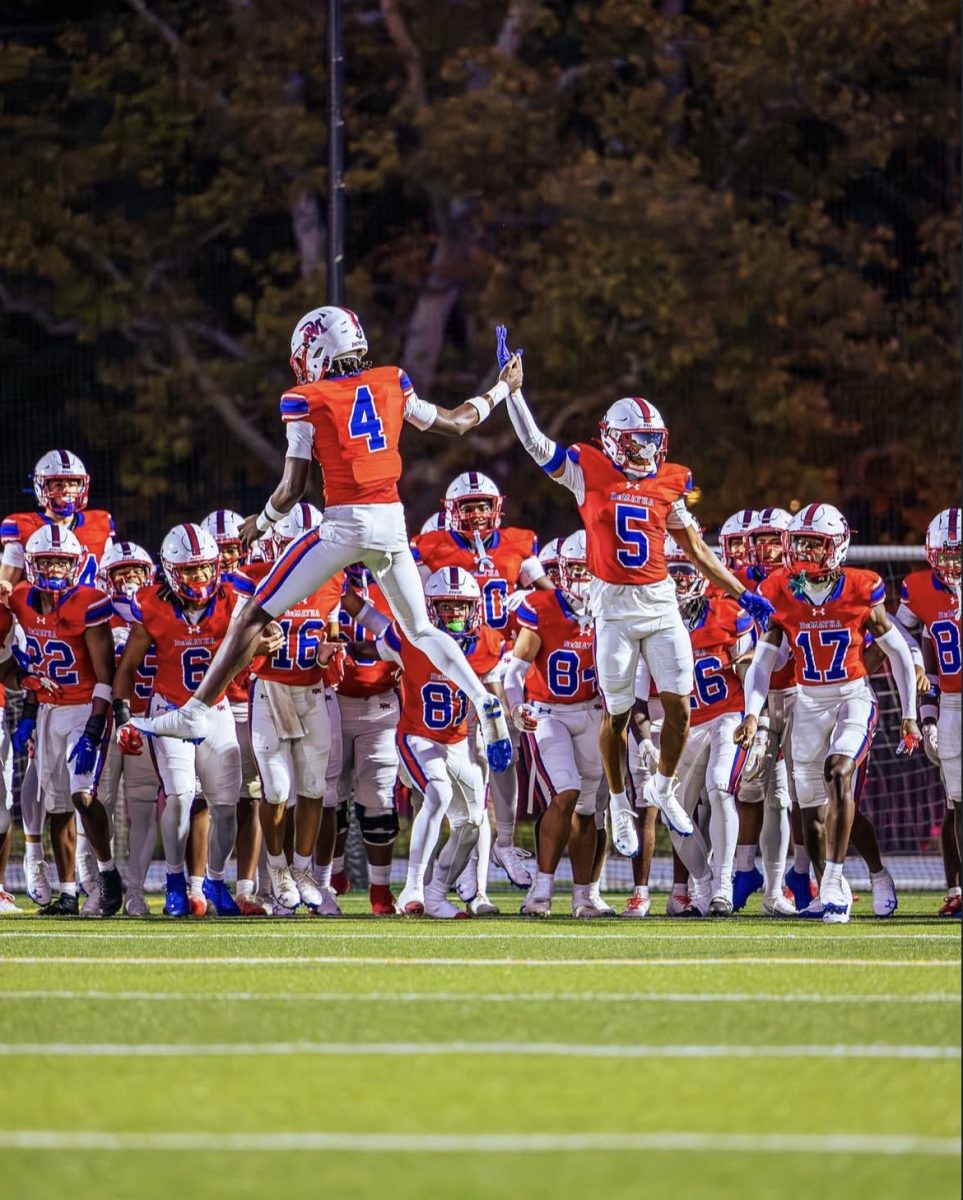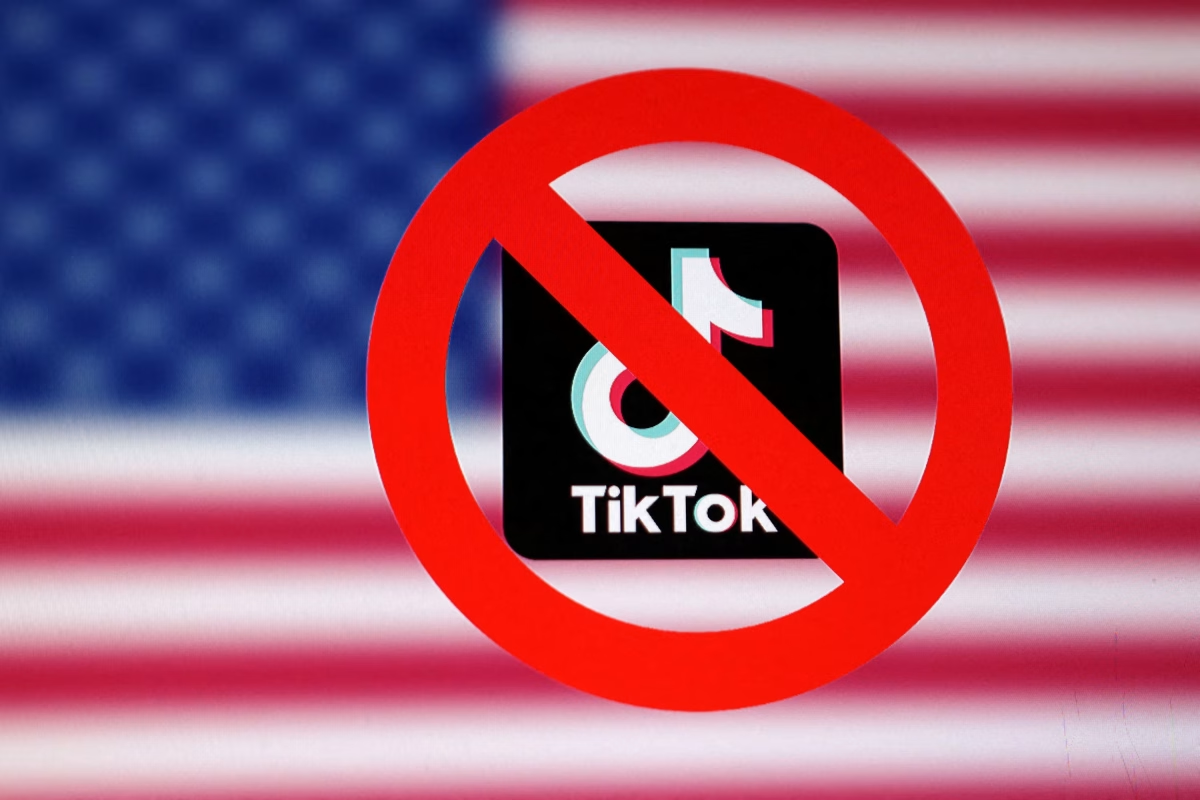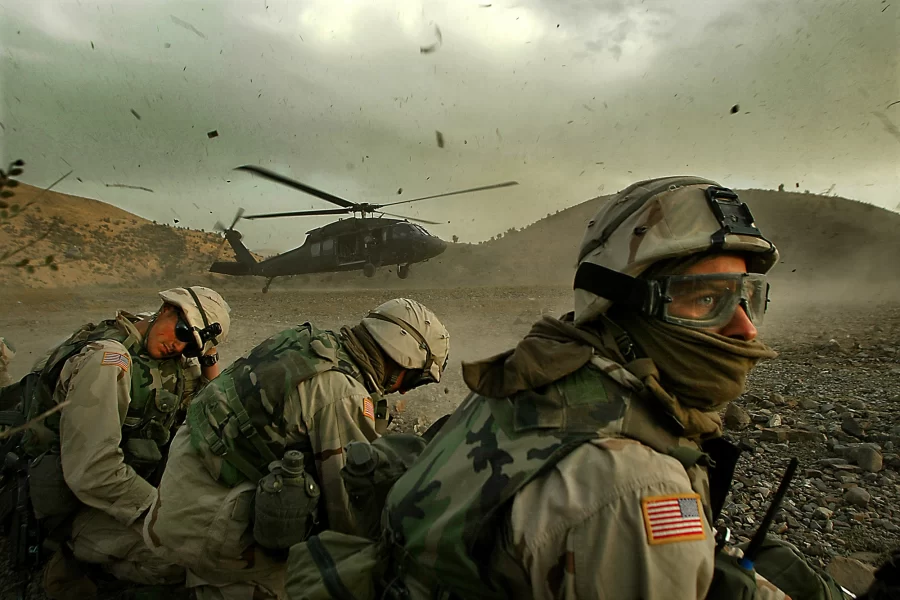The Cost of The War on Terror, Measured in Human Lives
Soldiers of the 82nd Airborne Division prepare to extract after a mission in southeastern Afghanistan. (Early 2000s, Rick Loomis/Los Angeles Times)
November 17, 2021
The War on Terror was one of the longest and costliest wars in the United States’ history. Over 20 years and 8 trillion dollars spent led to 900,000 deaths, 15,000 of those being American-employed soldiers and contractors. At the beginning, the goal of the United States and their allies was clear; they wanted to hunt down the terrorists responsible for the September 11 attacks and bring them to justice. However, politics, bureaucracy, and changing administrations had changed the goal to the point where it was unrecognizable. Were we fighting to eliminate the terrorists, or were we fighting to establish a government that supported our own interests? Regardless, the war was and remains to this day a contentious issue. Opposition to U.S. and foreign intervention in the Middle East has been a hot topic, as well another question: was the U.S. responsible for the attacks in the first place? Views and opinions vary, and I hope to explain my own opinion on it while looking at the effects of the war.
Aside from the tremendous number of American servicemen and women who died during the war, many of the survivors have come home with scars both above and beneath the skin. Just about 52,000 American soldiers have been wounded in combat both in Iraq and Afghanistan, with many unable to get healthcare to aid in their recovery. According to Public Citizen, a study from the Behavioral Risk Factor Surveillance System in 2019 showed that more than 3 million veterans do not have healthcare, with 2 million of those unable to afford it. Presumably, a significant percentage of those uninsured veterans are veterans of the War on Terror.
Additionally, many return home with mental illnesses from their time in the service. The Watson Institute of Brown University found that 30,177 service members and veterans of the War on Terror committed suicide, more than four times the amount of combat-related deaths. Many of those veterans were affected by PTSD, or Post Traumatic Stress Disorder. At least 10 to 20% of American service members experience PTSD, per the organization Retreat: Behavioral Health. Reasons for service members getting the disorder vary, with combat and an extreme and sudden change of setting being main causes. To cope, many choose to resort to self-harm or substance abuse, leading to the aforementioned high number of suicides. A veteran’s mental health does not only affect them, however. Family members of veterans with PTSD sometimes have social or behavioral issues as a result of their time with the person with PTSD, as a study by Professional Psychology found.
It is often hard for veterans to seek help for their mental health. PTSD in service members is a topic that is controversial, along with mental health in general. As a result, funding and awareness of these issues has decreased. There is also a shortage of healthcare professionals who can assist veterans with these problems, and the ones that can are likely stretched thin, which leads to them not getting as much help as they need. As said before, healthcare is also something that many veterans cannot get, resulting in their mental health deteriorating to the point of suicide. If people and politicians truly care about their military, they need to put more funding into places like the Department of Veterans Affairs, so more veterans can get the help they need with both physical and mental issues.
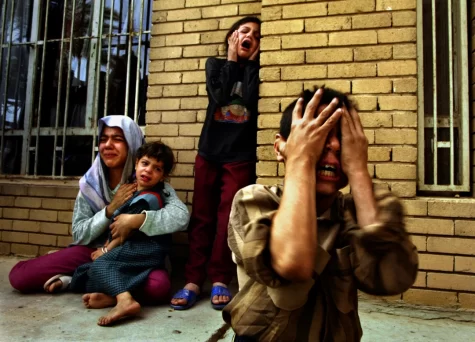
The War on Terror has also disproportionately affected civilians in the Middle East. Televisions across the world have been broadcasting Afghan civilians and their efforts to escape the Taliban. Desperate attempts by the Afghans to hold onto departing aircraft highlight the situation many Middle Easterners have found themselves in over the past two decades.
Over 38 million people in countries affected by terrorist groups, especially ISIS and the Taliban, have been displaced by the violence, with most of those people living in the Middle East. Additionally, since 2001, 387,000 civilians have died in post 9/11 conflicts. Reasons for death often range from hidden explosives, direct combat, and air strikes. Air strikes are especially controversial, with much scrutiny placed on presidents who authorize them.
President Obama came under fire in 2013 for a drone strike on a wedding procession in Yemen which killed 12 civilians and injured 15 more. An American drone strike by the Trump administration on January 3, 2020, which killed Iranian general Qasem Solemani, led to extremely high tensions between Iran and the U.S. for a period of time.
One also doesn’t have to look very hard to see the mental and societal effects wars in the Middle East have had. Novels like the Kite Runner show the impact groups like the Taliban had on Afghanistan, changing a once vibrant and peaceful place to a dictatorship. Films like Mosul portray the damage ISIS inflicted in Iraq and the Middle East in general. Images of destroyed houses and equipment from both U.S. and terrorist related violence are widespread, and refugees from the Middle East are pouring in, especially in the wake of the Taliban takeover of Afghanistan.
American society has also been tremendously impacted by the War on Terror. Patriotism skyrocketed after 9/11 in an attempt to unify the country. Though present before the event, members of the military were subject to much praise. The pregame and halftime shows of many sport events feature service members reuniting with their families, and jets are often seen flying over stadiums to the National Anthem. In attempts for political points, many bureaucrats and politicians will pledge aid to veterans. Unfortunately, their concern seems to go away considering, as mentioned before, aid for veterans is largely ignored and underfunded. Popular culture has also depicted American soldiers as flawless heroes and, with some exceptions, always portrays their cause as being just. Even movies like the Transformers series have been funded by the U.S. government in order to portray the military in a positive light.
This is not to say that military members and their families do not deserve praise and respect; they make a great sacrifice by joining a greater cause to help their nation. I have several family members who served during the post 9/11 wars who I have a lot of respect for, and I’m sure most people who know those in the military share my views. Still, the praise often goes to the wrong places. Defense spending has skyrocketed in the past two decades, mainly due to a mix of the increase of patriotism and also perceived global threats. However, corporations take a large part of those funds and profit from it. Companies like Lockheed-Martin, Boeing, and Raytheon, who create and manufacture equipment for the American military, received over $166 billion in funding in 2020 alone, according to the website Counter Punch. Many see this as bad business, as both Americans and Middle Easterners suffer in the war while the corporations profit off of it.
Now to the question; was the War on Terror worth it? In my opinion, it’s somewhat of a mixed bag. We did eliminate Osama bin Laden, head of Al-Qaeda and the planner of the 9/11 attacks. For a time, terrorist groups seemed to have their backs against the wall. However, we became bogged down in nation building which, while a good goal, was executed extremely poorly and instead created a corrupt and inefficient government in Afghanistan who put up little resistance to a Taliban takeover. Billions of dollars worth of military equipment, training, and financial and infrastructural support went down the drain in a sense. Thousands of American citizens were killed. The ones who did return were forever changed by the war, mostly in a negative way, returning with scars that will likely not heal. The political and social landscape of the Middle East has been set back decades. Many activist groups and people who aided the Americans in the war are at risk of retaliation.
The failures of the U.S. do not erase the successes, and the successes do not erase the failures. It is important that we are able to help where we can in regards to the Middle East. Actions like helping refugees to get to safer locations outside of Afghanistan and Taliban-controlled areas, providing diplomatic aid to those stuck in legal loopholes to escape, and generally safeguarding the people of the region will help out a great deal. It will not make our endeavors a success but, in my opinion, will go a long way in making it right. We should also learn from our mistakes and time in the War on Terror, in hopes that someday we will not be dragged into a 20-year-long slog which had little rewards.
This article was originally written directly after the end of American intervention in Afghanistan in late September.




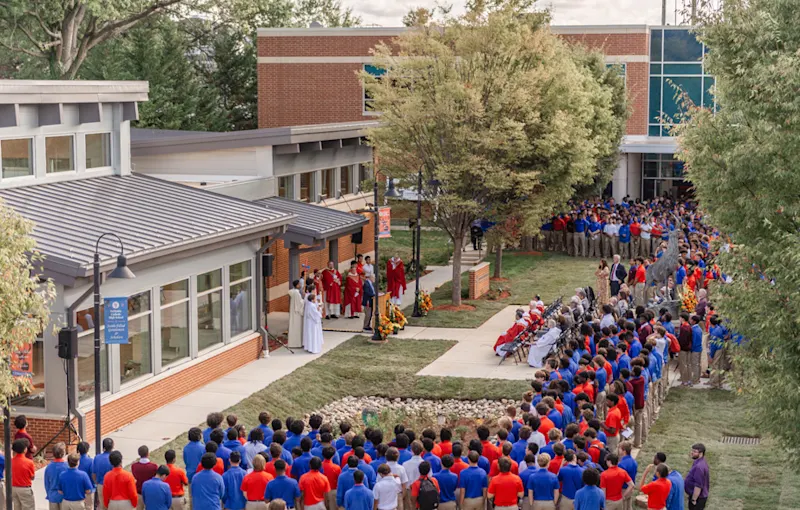

![DeMatha Catholic [@DeMatha Catholic]. 2025, September, 19. Instagram.](https://demathastagline.com/wp-content/uploads/2025/09/IMG_3305.jpeg)

